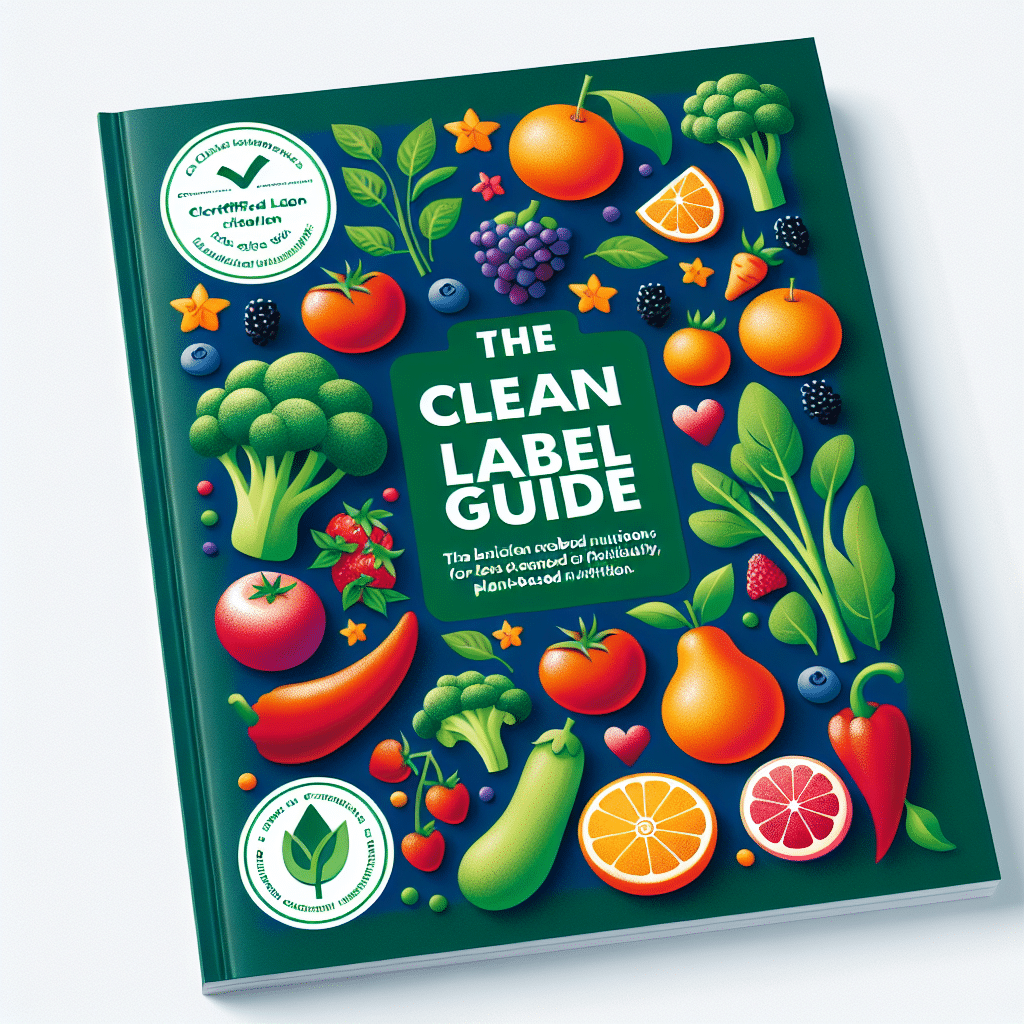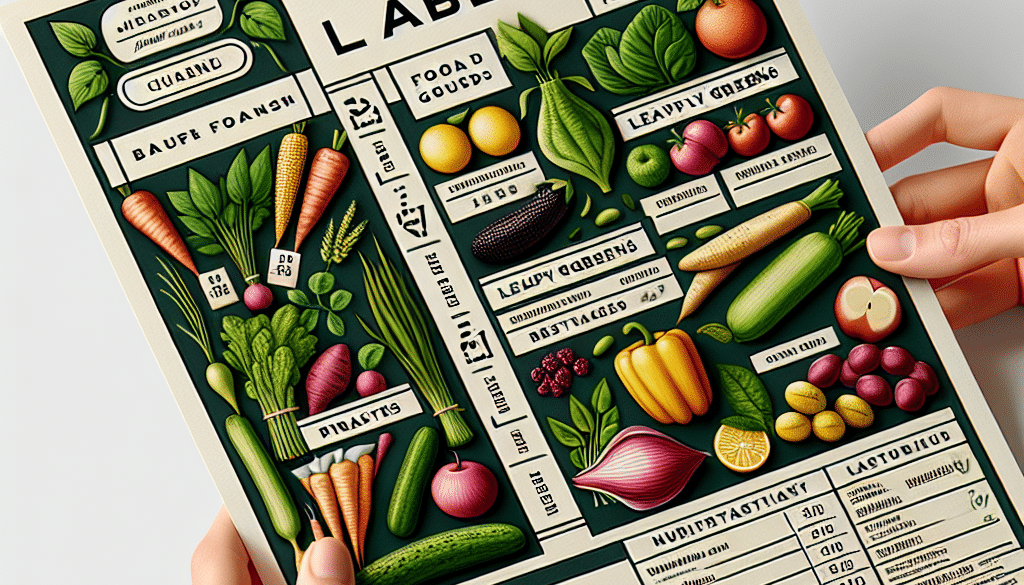Plant-Based Nutrition: The Clean Label Guide
-
Table of Contents
- Plant-Based Nutrition: The Clean Label Guide to Healthier Eating
- Understanding Clean Label
- The Rise of Plant-Based Diets
- Navigating Plant-Based Nutrition Labels
- Case Studies: Success Stories in Clean Plant-Based Nutrition
- Challenges in Plant-Based Nutrition
- Statistics: The Growth of Plant-Based Nutrition
- Conclusion: Embracing Plant-Based Nutrition with a Clean Label Approach
- Discover ETprotein’s Plant-Based Protein Products
Plant-Based Nutrition: The Clean Label Guide to Healthier Eating

As consumers become increasingly health-conscious and environmentally aware, the demand for clean label products has surged. Plant-based nutrition is at the forefront of this movement, offering a sustainable and wholesome alternative to traditional animal-based foods. This guide delves into the world of plant-based nutrition, highlighting its benefits, challenges, and how to navigate the clean label landscape.
Understanding Clean Label
Clean label is a term that resonates with simplicity, transparency, and natural ingredients. It’s not regulated by a strict definition, but it generally refers to foods with:
- Fewer and simpler ingredients
- No artificial additives or preservatives
- Non-GMO components
- Minimal processing
For plant-based nutrition, a clean label means that the food is made from plants and is as close to its natural state as possible.
The Rise of Plant-Based Diets
Plant-based diets are gaining popularity for several reasons:
- Health benefits: Studies have linked plant-based diets to lower risks of heart disease, diabetes, and certain cancers.
- Environmental impact: Plant-based diets have a lower carbon footprint compared to diets high in animal products.
- Ethical considerations: Many people choose plant-based options to avoid the ethical dilemmas associated with animal farming.
As a result, the plant-based food market is booming, with a projected compound annual growth rate (CAGR) of 11.9% from 2020 to 2027, according to a report by Grand View Research.
Navigating Plant-Based Nutrition Labels
While plant-based foods are generally perceived as healthy, not all products are created equal. Here’s how to ensure you’re choosing truly clean label options:
- Read the ingredient list: Look for whole food ingredients and avoid products with long lists of additives.
- Check for certifications: Labels such as USDA Organic, Non-GMO Project Verified, and Certified Vegan can indicate a cleaner product.
- Be wary of health claims: Some products may be marketed as “plant-based” but still contain unhealthy levels of sugar, salt, or fat.
Case Studies: Success Stories in Clean Plant-Based Nutrition
Several brands have successfully capitalized on the clean label trend by offering plant-based products that prioritize health and transparency. For example, Beyond Meat and Impossible Foods have revolutionized the plant-based meat industry by focusing on simple, recognizable ingredients. These companies have not only attracted health-conscious consumers but also those looking to reduce their meat consumption without sacrificing taste or texture.
Challenges in Plant-Based Nutrition
Despite the benefits, there are challenges to consider:
- Nutrient deficiencies: Some plant-based diets may lack essential nutrients like vitamin B12, iron, and omega-3 fatty acids.
- Over-processing: Some plant-based products are highly processed to mimic the taste and texture of animal products, which can negate health benefits.
- Cost: Clean label, plant-based products can be more expensive than their conventional counterparts, making them less accessible to some consumers.
It’s important to balance the desire for plant-based options with the need for a nutritionally complete diet.
Statistics: The Growth of Plant-Based Nutrition
The numbers speak for themselves:
- According to the Plant Based Foods Association, U.S. retail sales of plant-based foods grew 11% from 2018 to 2019, outpacing total food sales.
- A 2020 study by Ipsos Retail Performance found that 9.7 million Americans have adopted a plant-based diet, up from just 290,000 in 2004.
- The global plant-based meat market alone is expected to reach $35.4 billion by 2027, according to Polaris Market Research.
These statistics demonstrate the significant impact of plant-based nutrition on the food industry and consumer habits.
Conclusion: Embracing Plant-Based Nutrition with a Clean Label Approach
Plant-based nutrition offers a path to a healthier lifestyle and a more sustainable food system. By choosing clean label products, consumers can enjoy the benefits of plant-based diets while supporting ethical and environmentally friendly practices. As the market continues to grow, it’s crucial to stay informed and make choices that align with personal health goals and values.
Discover ETprotein’s Plant-Based Protein Products
If you’re looking to incorporate high-quality plant-based proteins into your diet, ETprotein offers a range of products that align with the clean label philosophy. Their organic and non-GMO protein powders, including rice, pea, and various seed proteins, are perfect for those seeking pure, plant-based nutrition. With ETprotein’s commitment to neutrality in taste and allergen-free options, you can enhance your meals and snacks without compromising on health or flavor.
About ETprotein:
ETprotein, a reputable plant protein vegan protein Chinese factory manufacturer and supplier, is renowned for producing, stocking, exporting, and delivering the highest quality organic bulk vegan protein and plant proteins. They include Organic rice protein, clear rice protein, pea protein, clear pea protein, watermelon seed protein, pumpkin seed protein, sunflower seed protein, mung bean protein, peanut protein etc. Their offerings, characterized by a neutral taste, non-GMO, allergen-free attributes, cater to a diverse range of industries. They serve nutraceutical, pharmaceutical, cosmeceutical, veterinary, as well as food and beverage finished product distributors, traders, and manufacturers across Europe, USA, Canada, Australia, Thailand, Japan, Korea, Brazil, and Chile, among others.
ETprotein specialization includes exporting and delivering tailor-made protein powder and finished nutritional supplements. Their extensive product range covers sectors like Food and Beverage, Sports Nutrition, Weight Management, Dietary Supplements, Health and Wellness Products, and Infant Formula, ensuring comprehensive solutions to meet all your protein needs.
As a trusted company by leading global food and beverage brands and Fortune 500 companies, ETprotein reinforces China’s reputation in the global arena. For more information or to sample their products, please contact them and email sales(at)ETprotein.com today.












